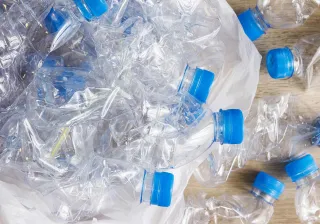A wide range of reactors, data and experts ensure that new bioeconomy and circular economy processes can be expanded to the scale desired by the customer on VTT's updated piloting platform for process chemistry at VTT Bioruukki pilot centre.
VTT Bioruukki, located in Espoo, Finland, pilots processes related to chemical recycling of plastics and the development of bio-based fuels and textile fibres, for example. Many of these processes require thermochemical methods or equipment developed specifically for biomass, from pulp digesters to fibre spinning equipment. However, many processes also fall within the scope of general process chemistry, which is why VTT has updated its piloting platform for process chemistry.
“Our customers typically develop materials and chemicals from challenging raw materials, such as industrial side streams, biomass and recycled raw materials. This usually means that pressure reactors suitable for chemical modification are needed in the process, as are a variety of separation equipment for post-treatment,” explains Pauliina Kivinen, VTT’s Research Scientist at the piloting platform for process chemistry.
Expertise and process data
In addition to the equipment, VTT offers its customers the expertise required for piloting, regardless of whether they have their own or not.
“Piloting platform researchers and engineers plan the expanding of production scale together with customers, and the customer can participate in it if they wish so,” says Kivinen. According to her, analyses that support scaling often run routinely in the customer's laboratory, but they can also be performed at VTT if necessary.
Versatile process data is a key part of successful process chemistry piloting - it helps to optimise scaling up during the piloting. According to Kivinen, VTT Bioruukki has invested in both data collection and processing, and each customer also has access to analyses of raw data that offer a good start in expanding production to factory scale.
“In addition to monitoring reactor temperature, pressure and mixing power, we also collect data on utilities, such as steam and cooling water. This will give us as accurate information as possible for energy balances.”
Facilities also for explosive substances
The process chemistry testing equipment are in a hall of approximately 600 square metres of which slightly less than half is separated into Ex-classified, i.e. explosive, facilities.
“Even if customers have their own piloting facilities, only few have the scale we have at VTT Bioruukki where also flammable liquids and gases can be handled,” says Kivinen. She has also noticed that the piloting platform is of great interest because it is easy to combine different reactors and post-treatment equipment on it.
Some customers are also interested in the possibility of scaling from laboratory scale to a scale of, for example, 600 litres through scales of 10 litres and 130 litres. The largest reactors have 1,800 litres of capacity.
“In addition to piloting, we can produce quite large quantities of the customer's product, allowing them to continue testing it in applications.”
The piloting platform has batch reactors of different pressure and temperature classes up to 50 bar and 250 degrees Celsius. The reactors also differ in their surface materials and mixers.
According to Kivinen, reactors are typically used for chemical synthesis, polymerisation, dissolution, stripping, evaporation and precipitation. With wood biomass, extraction of different components is also common. Filters, separators and evaporators, among other things, can be used for post-treatment.
“We are constantly developing the piloting platform. We are open to the idea that an equipment supplier would temporarily bring equipment, which we do not yet have, to the hall or connecting a customer's own device to the process.”








